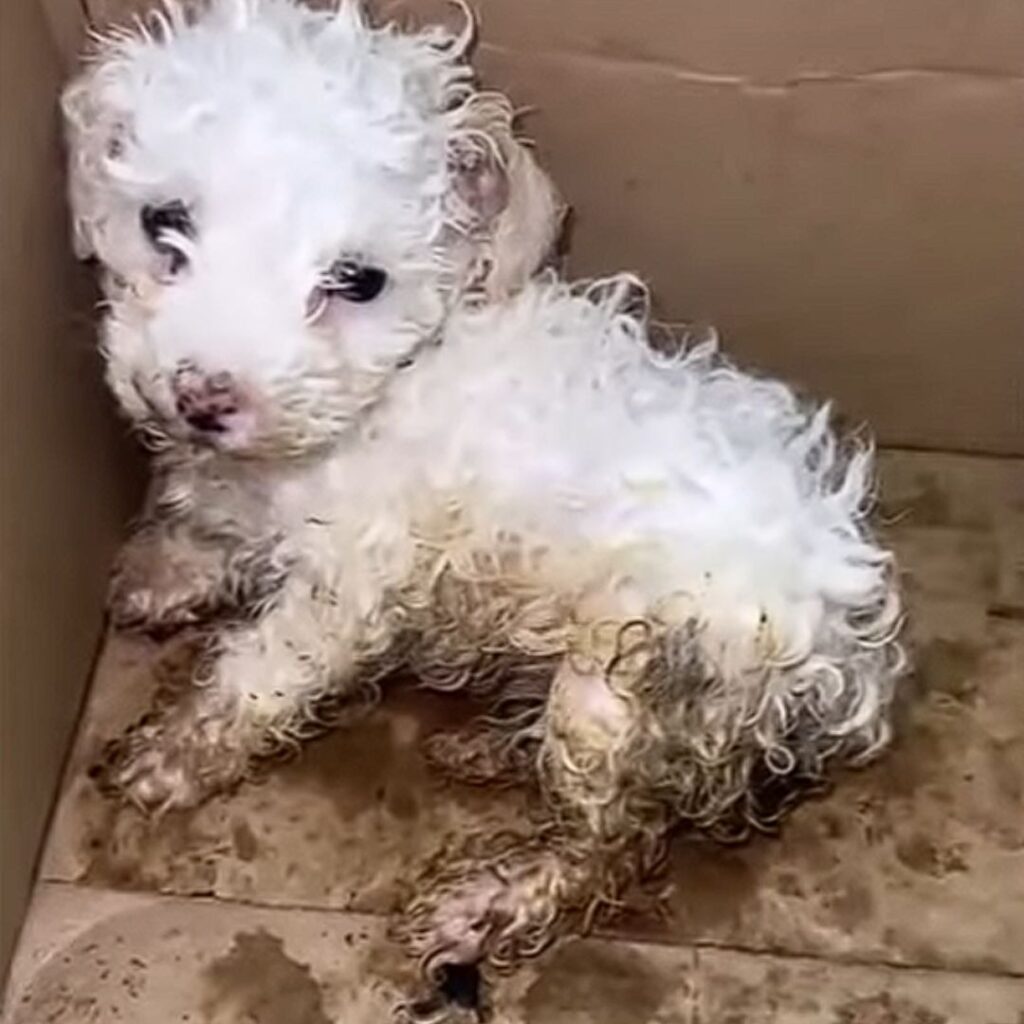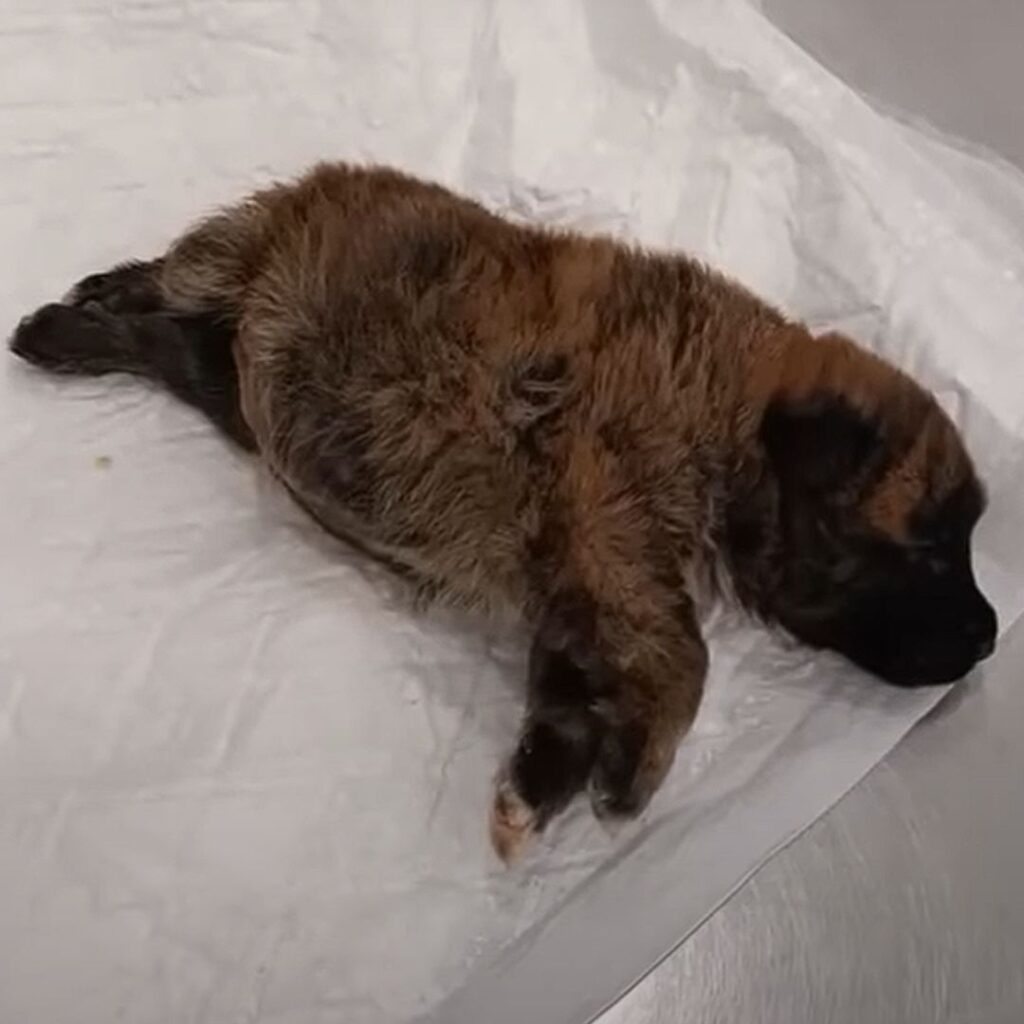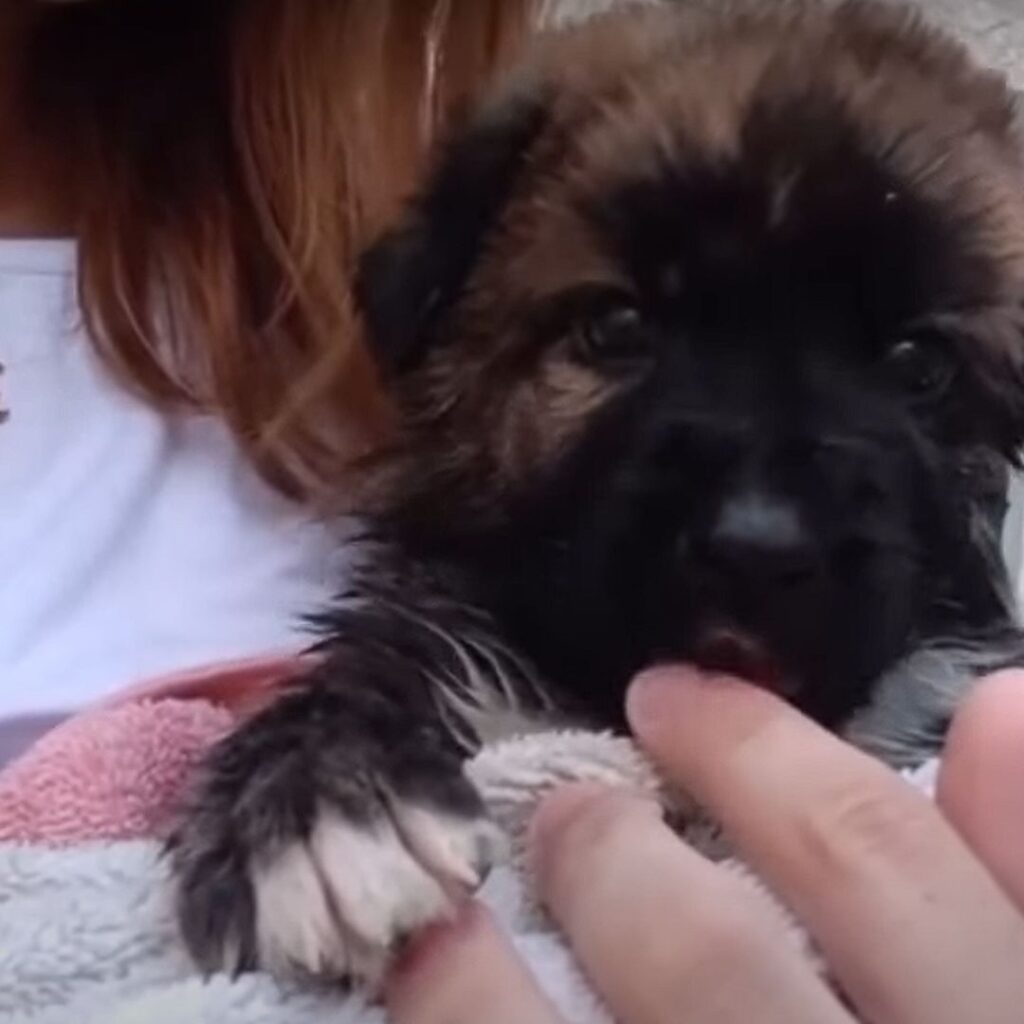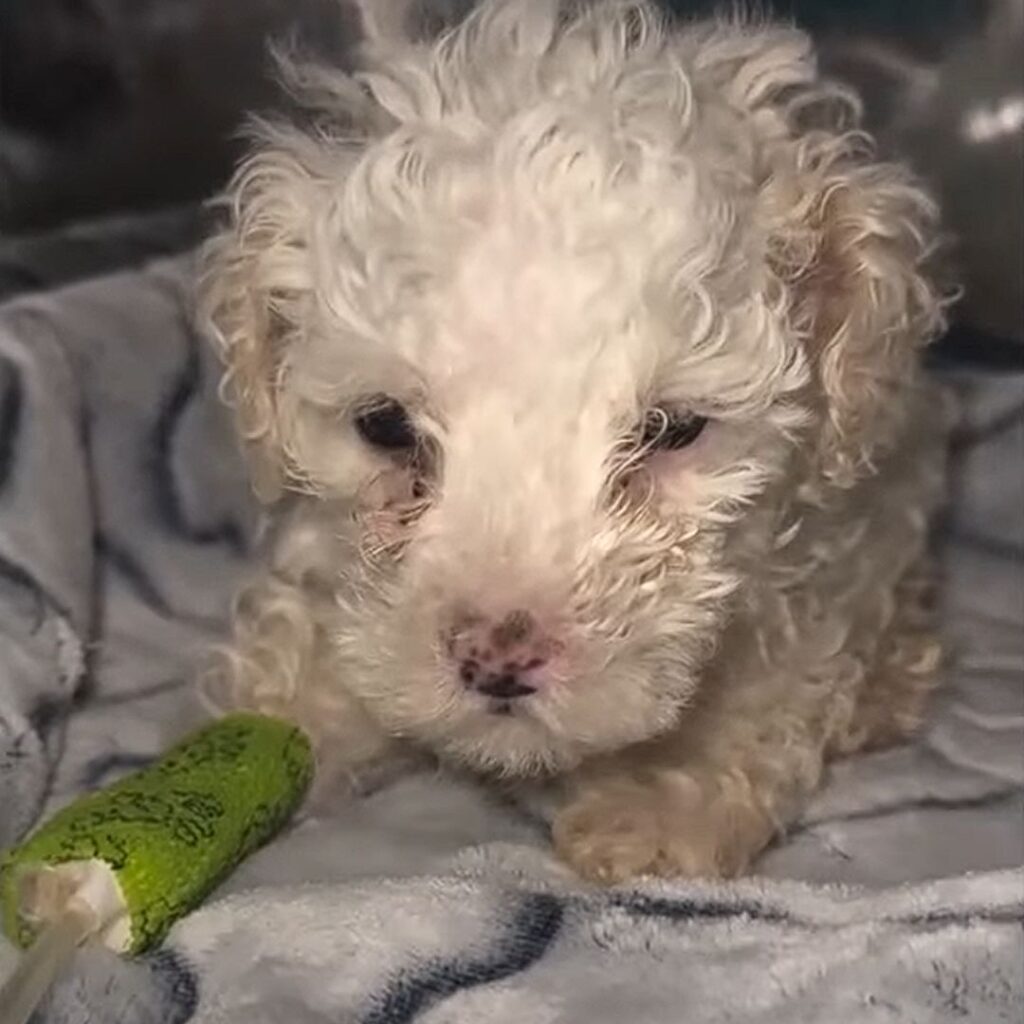Milo Was Left to Die in the Rain—But His Spirit Refuses to Break
The rain fell soft and steady, soaking through the cardboard box. Inside, a tiny white puppy shivered, his little body pressed into the damp corner for warmth.

Not far away, hidden beneath a bush, his brother let out a faint whimper—too weak to move but stubborn enough to cling to life. They were barely a month old, abandoned at 1:15 a.m. under the dim glow of a lonely streetlight.

A shadow moved briefly across the shelter’s security camera—a man leaving them behind without a backward glance.
The cardboard box sagged and collapsed under the puppy’s weight, rain dissolving its edges. The bush offered no shelter, no comfort, only a hiding place from a world that had already failed them.
When morning arrived, gray and heavy with drizzle, a volunteer named Maria stumbled upon the scene. Her breath caught as she saw the two tiny shapes—the white puppy nearly motionless, his fur clumped with mud, his eyes half-closed.
His brother, curled tightly in the bush, was frail but fighting. She scooped them up gently, urgency in her touch, and carried them inside to the shelter.
Warmth, soft blankets, and quiet voices welcomed them.
The stronger of the two was named Milo, for the spark that flickered in his tired body. The white puppy remained nameless—his breaths shallow, his strength slipping away.
For two days, the staff fought to save him. They fed him tiny drops of milk, warmed his fragile body, and whispered encouragement. But his little heart gave out, leaving behind a silence that echoed in the shelter’s halls.
Milo’s eyes shone with determination, though his small body betrayed him. His belly swelled unnaturally, hard and painful. X-rays revealed something lodged inside, almost like cement.
Worse still, an old injury had left his pelvis broken and fused the wrong way. Walking normally would never be possible for him.
The staff grieved quietly. Yet Milo didn’t know despair. He nudged toys with his nose, wagged his tail despite the pain, and greeted his caregivers with trust.
When his belly eased, he dragged himself across his blanket, a tiny smile glimmering in his eyes.
The volunteers fed him carefully, watched him closely, and cradled him often. Milo leaned into their hands, unaware of the cruelty that had marked his beginning. He only knew kindness now.
The man who had abandoned them was eventually identified. He had bred puppies for profit, discarding the weak ones as worthless. This was not his first offense—he had been fined before, even arrested, but nothing had changed.
He confessed without shame, his voice flat, unrepentant.

But Milo didn’t understand any of that. He didn’t know betrayal or greed. What he knew was the soft murmur of volunteers, the comfort of a clean bed, the squeak of a toy.
Finding a home for Milo proved difficult. Visitors at the shelter passed him by, their eyes sliding to healthier, stronger dogs. They wanted a companion who could run and play freely, not one who dragged his hind legs.
Still, Milo greeted everyone with hope, tilting his head and wagging his tail as if each new face might be the one.
The volunteers made a quiet vow—Milo would never be alone again. They loved him not for his abilities but for his spirit.
Days turned into weeks, weeks into months. Milo grew stronger in heart if not in body. He rested his head on the knees of those who cared for him, breathing slow and steady, as if he finally felt safe.
The shelter became his haven. His story was shared online with photos and videos of his small victories. The staff hoped that somewhere out there was a family who would see beyond his brokenness to the light in his eyes.
Milo had become more than just a puppy. He was a reminder of resilience, of loyalty, of second chances. He reflected the quiet strength in every volunteer who refused to give up on him.
Whether or not he found a new home, one truth was certain: Milo was enough. And his days, however many there would be, would be filled with love.






